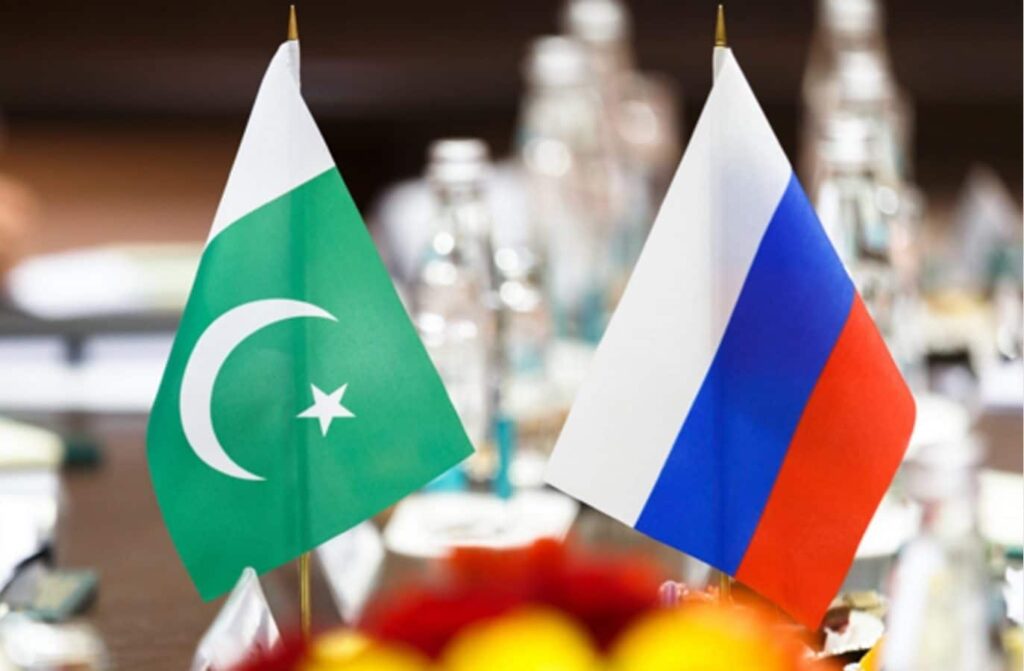

By Andrew Korybko, Moscow-based American political analyst
04 Febuarary 2021
Three important developments late last year prove that Russian-Pakistani relations are moving in the right direction. The first was the latest joint military drills that took place in the middle of November. This was followed up by both parties agreeing to revive the stalled North-South Gas Pipeline project as the rebranded Pakistan Stream Gas Pipeline. The last event was President Putin promising “to further strengthen our mutually beneficial ties with the Islamic Republic of Pakistan in developing the economy, trade and power engineering and in ensuring regional security” while accepting the credentials of the new Pakistani Ambassador to Russia.
Taken together, bilateral relations are gradually moving in the direction that the author outlined in the academic article that he co-authored in spring 2020, “Pakistan’s Role In Russia’s Greater Eurasian Partnership”, which was republished by the prestigious Russian International Affairs Council think tank (among the top in Russia). As is now seen, these two countries have put aside the contentious issue of their past and have decided to turn the page on their history in order to pioneer a new era of relations. This is very welcome and speaks to the political maturity of both of their leaderships, as well as their shared multipolar vision.
Russia and Pakistan are both practicing their own “balancing” acts, but each complements the other, hence the promising potential for further strategic synergy. Moscow regards Islamabad as a key partner for restoring “balance” to its increasingly “imbalanced” relations between Beijing and Delhi. This is because the improvement of Russian-Pakistani relations enables the Eurasian Great Power to simultaneously reassure China of its friendly intentions despite its renaissance of relations with India while also reminding the latter that Russia has regional alternatives if New Delhi continues to woo the West at Moscow’s expense.
As for Pakistan, it seems to regard Russia as a much-needed third pole of regional power for perfecting its “balancing” act between the US and China, thus serving as a pressure valve from having to choose between either of those two in what the author previously described as the New Cold War’s emerging system of “New Bipolarity”. To be absolutely clear, neither Russia nor Pakistan officially regards their relations with one another as having anything to do with any third country, but the reality is that their envisioned “balancing” acts are complementary with one another and intended to strengthen regional security in this ultra-strategic space.
At the same time, however, some impediments remain to their relations, and these were discussed in the author’s analysis from summer 2019 about “Russia, Pakistan, And The ‘Bait Theory‘”. Basically, it was postulated that while their intent to improve bilateral relations is sincere, the optics of them doing so also serves other self-interested purposes related to their respective “balancing” acts and might thus never have been intended to go all that far too soon. The initial motive might have been to leverage the impression of rapidly improving bilateral relations in order to compel their traditional Indian and US partners to offer them better deals.
That’s not all that there is to it, of course, since there still exist certain elements within their permanent military, intelligence, and diplomatic bureaucracies (“deep states”) who are still skeptical of this rapprochement in principle. This is more so the case on the Russian side than the Pakistani one, but it nevertheless exists to differing extents in each. These forces are sincerely concerned that these latest moves might be a mistake, yet they’ve thus far lacked the power to alter the course of events. It’s therefore predicted that their influence will continue to wane as each “deep state” realizes the objectively existing mutual benefits of their rapprochement.
It shouldn’t be forgotten that Russia and Pakistan were hated rivals just a generation ago so the very fact that so much progress has already been achieved in the past half-decade since they initiated their rapprochement is in and of itself very commendable. This could only have been brought about as a result of their leaders approving of such a development, which explains why skeptical elements of their “deep states” have been sidelined after their failed lobbying efforts to slow down this process. Going forward, the future of Russian-Pakistani relations is very bright, and these two countries are slowly moving towards a strategic partnership.
Disclaimer: The views expressed in the article are of the author and do not necessarily represent the institute’s policy.

